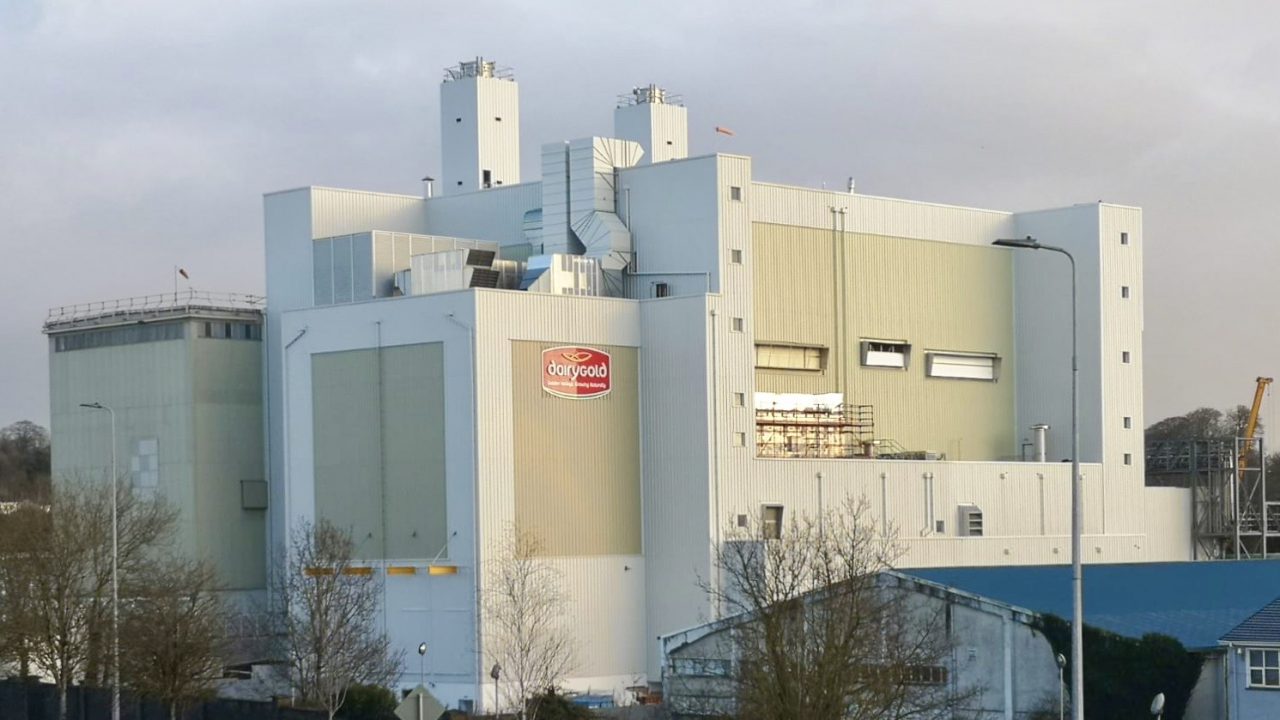Sustainability challenges and the matter of putting policies in place to meet climate action targets are a key concern for Dairygold – with efforts already underway to meet these targets from an individual cooperative perspective, according to Dairygold’s leadership team.
Following the announcement of the co-op’s financial results for 2020 earlier this week on Wednesday (April 7), Dairygold’s CEO Jim Woulfe, chairman John O’Gorman and CFO Michael Harte spoke to Agriland to discuss last year’s performance.
“The whole issue of the climate action plan and the policies to meet the targets in the climate action plan is a concern – because there is a lack of clarity around that; there’s a fog in that space at the moment,” CEO Jim Woulfe explained.
“Most certainly if you were looking at the areas that would be concerning Dairygold and its board would be the pathway ahead and the policies to make sure that we meet our targets in that whole climate action plan.
“At the moment you would have to say that all the stakeholders are not ad idem on this. Different people are taking different positions.
“I can only speak from a Dairygold point of view…but back two years ago we put a sustainability bonus in place,” the CEO said.
Dairygold approach
Commenting on this, he explained: “If you were a member of the Sustainable Dairy Assurance Scheme [SDAS], if you were milk recording and you were following a herd health programme, the combination amounted to 0.25c/L of a bonus. We’re trying to incentivise people on that space.
“Equally, we have been very much to the forefront with Teagasc in our joint programme in putting in place Signpost farms that will be the benchmark for people in different regions
“This is going to be nationwide I know, with Teagasc and that is laudable because everyone is in this together.
“The other point that is important from our point of view is that we actually show on the milk statement the carbon number.
“We’re doing that to educate our members and to ensure that they become au fait with carbon numbers and then say ‘well how can we deal with that and address that’.
“Because there is a huge amount of work to be done in the sustainability piece and there is an awful lot of things to be agreed on policy,” Woulfe stressed.
The CEO highlighted that a plan is about setting targets – but the policy will deliver those targets: “We really don’t know what the policy is yet. It is time to get around the table and get those policies in place.
“We know where we’ve to get to from an environmental and sustainability point of view – but the question is how, and is every one of the stakeholders together.
There are questions on that yet and that needs to be done as a priority, the CEO warned.
Measures and MACC
“The measures that we’re very clear on and have adapted as an organisation is the Teagasc MACC [Marginal Abatement Cost Curve] curve.
“Clearly within that there are a whole range of measures; but the big ones would be protected urea – and we’re very much campaigning on protected urea from a fertiliser point of view.”
Woulfe highlighted the use of protected urea and low-emission slurry spreading (LESS) techniques as two techniques that “aren’t overburdening farmer”s.
“You use different technologies and different equipment but we’ve got to do that,” he continued.
“We’re using those as demonstrations to use the MACC curve to apply the best practice and principles; because that’s going to be the easier win here.
“People are talking about the stable herd and I can understand all that; but the first thing we’ve got to do is apply the husbandry practices that are already set out in template.
“Apply those and you’re going to get that first 10 or 15% of a correction. That’s the piece that we’re focusing in on.
“Because the policies have to be refined and there has to be agreement; the problem at the moment is that some stakeholders aren’t comfortable to start moving on this space – everybody has got to start moving on this together.
“We do need as an industry to get collectively focused on this and put the appropriate measures in place that will give direction to farming communities,” Woulfe stressed.
Carbon footprint on milk statements
John O’Gorman, Dairygold chairman also commented on the challenge, and the co-op’s moves in this field, noting:
“We as an organisation are very supportive of the Signpost farms demonstrating to farmers how they can achieve this.
“Our target as an organisation is to move from our current position of 1.13kg of CO2 fat and protein corrected milk solids down to 0.7kg.
“We are quite confident that we can get there as an organisation. We are providing our members with their carbon footprint on their milk statements. What you measure you can control – and I think that is a good way to start off from.
“If we can get this right early on, we may not have to go as deep to get corrective action on that.
“All stakeholders have to be aligned on this and work together to clearly communicate and give direction to farmers on the roadmap to achieving those targets.
“Targets are targets – but you need to put a plan in place to achieve those targets.
“That’s what our members are looking for; they’re looking for guidance and clarity of direction. They are very much engaging and they realise what their responsibility is.
“I do feel that farmers in general will not be found wanting when it comes to taking corrective action. Because the reality is that most of the measures that make environmental sense also make economic sense at farm level,” O’Gorman concluded.
